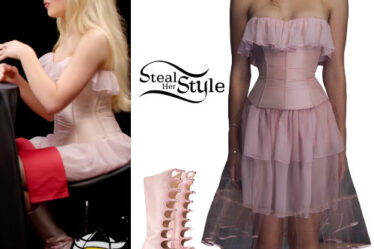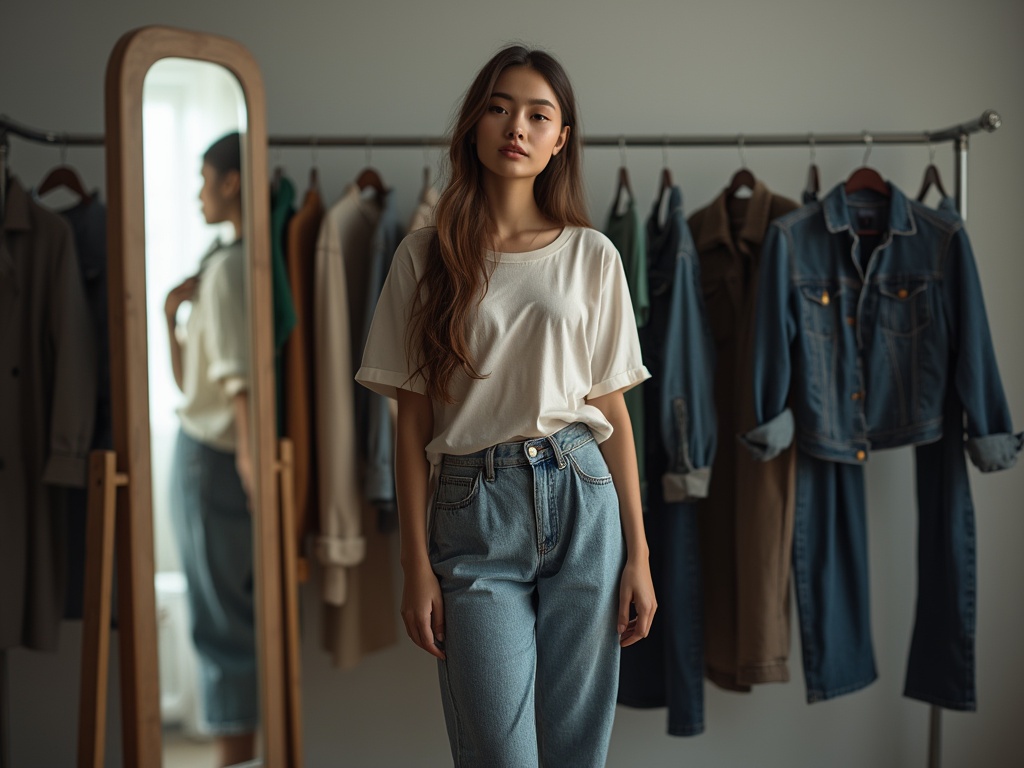
Have you ever noticed how the clothes you wear can completely transform not just your appearance, but your entire mindset? Personal style serves as a powerful form of self-expression that goes far beyond just following fashion trends – it’s an intimate reflection of our identity, values, and emotional state.
Through thoughtful wardrobe choices, we can create a unique visual language that authentically communicates who we are to the world while boosting our confidence and mental well-being in profound ways.
The Impact of Clothing on Self-Identity and Self-Esteem
A striking 82% of high school students express their identity through their appearance, highlighting how deeply personal style influences self-perception.
The clothes we choose act as a powerful tool for self-expression, creating a visual language that communicates our personality, values, and emotions to the world.
Many individuals find comfort and confidence through Christian apparel, allowing them to showcase their beliefs while staying true to their personal style.
Research shows that our wardrobe choices directly affect our mental well-being and thought processes.
Wearing formal attire can boost abstract thinking and increase feelings of self-confidence, while comfortable clothing helps reduce stress and anxiety. The relationship between clothing and self-identity runs deep, as our outfits often reflect our current emotional state or the person we aspire to be.
Here’s how clothing influences our psychological well-being:
- Color choices affect mood and energy levels – bright colors can uplift spirits, while darker shades might reflect a desire for sophistication
- Fit and fabric selection impact physical comfort, which directly relates to emotional comfort
- Specific style elements can enhance natural features, boosting self-esteem
- Outfit choices serve as non-verbal cues in social interactions, affecting how others perceive and respond to us
- Personal style evolution mirrors personal growth and changing life roles
The psychological impact of clothing extends beyond mere aesthetics. When people dress in ways that align with their authentic selves, they experience improved focus, heightened creativity, and better social interactions.
This connection between clothing and identity isn’t just about following trends – it’s about discovering and embracing what makes each person unique.
Your wardrobe can serve as a daily form of creative expression and emotional support.
By choosing clothes that make you feel confident and comfortable, you’re not just dressing your body – you’re nurturing your mental well-being and reinforcing your sense of self.
This conscious approach to personal style helps create a positive feedback loop between your outer appearance and inner feelings of worth.
Bonus: Your clothing choices can influence not only how you feel about yourself but also how others perceive your confidence and authority. Experimenting with different styles can help you discover what best aligns with your personality and enhances your sense of self.
Fashion, Confidence, and Personality Expression
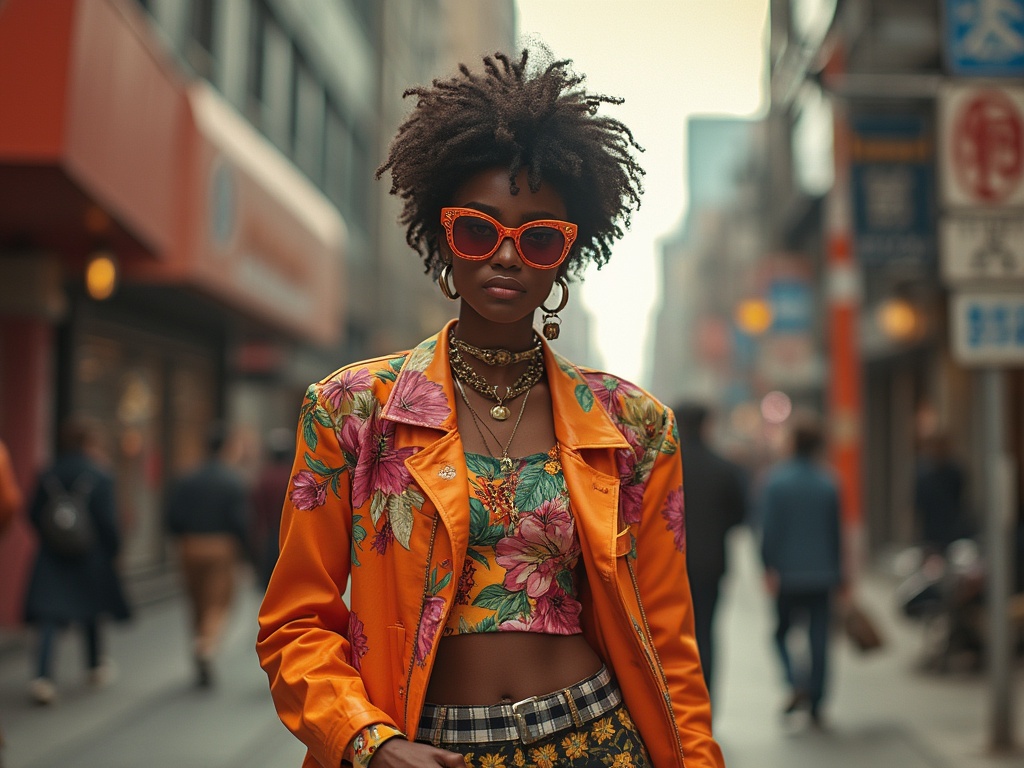
People who feel satisfied with their clothing choices show 65% higher levels of sociability and emotional stability in social situations. The intricate connection between what we wear and how we feel has become increasingly clear through behavioral research and real-world observations.
The way we dress serves as a powerful tool for self-expression, shaping both our inner confidence and outer perception.
Colors play a significant role in how clothing affects our mindset. Wearing warm tones like red can boost energy levels, while cool blues promote calm and focus.
The psychological impact of clothing extends beyond colors – the fit, texture, and overall style of our outfits create a personal narrative that communicates our identity to others.
Many professionals have found that adding personalized elements to their wardrobe, such as custom created dress socks, helps them express individuality while maintaining a polished appearance.
Your clothing choices can reflect various aspects of your personality.
Here are key ways fashion and personality intersect:
- Bold patterns and bright colors often indicate an extroverted nature and openness to new experiences
- Minimalist styles with clean lines can reflect analytical thinking and attention to detail
- Vintage or eclectic combinations suggest creativity and appreciation for history
- Athletic wear preferences might indicate an active lifestyle and goal-oriented mindset
- Accessory choices reveal subtle aspects of personal taste and cultural influences
Personal style transcends fleeting fashion trends, creating a unique visual identity that aligns with individual values and lifestyle choices.
This authentic approach to dressing helps build genuine connections with others who share similar interests or appreciate your distinctive perspective.
By choosing clothes that genuinely reflect who you are, you create a harmonious relationship between your inner self and outer appearance.
The comfort and confidence derived from wearing clothes that match your personality can significantly impact daily interactions and professional success.
When your style authentically represents your character, it becomes easier to navigate social situations and professional environments with natural confidence.
This alignment between personal style and self-expression creates a positive feedback loop, reinforcing self-assurance and social competence in various life situations.
Fun Fact: The average person gets dressed approximately 29,000 times in their lifetime, with clothing choices influenced by personality traits, social identity, and even cognitive effects like “enclothed cognition”—the phenomenon where what we wear impacts our mindset and performance.
The Psychological Influence of Enclothed Cognition
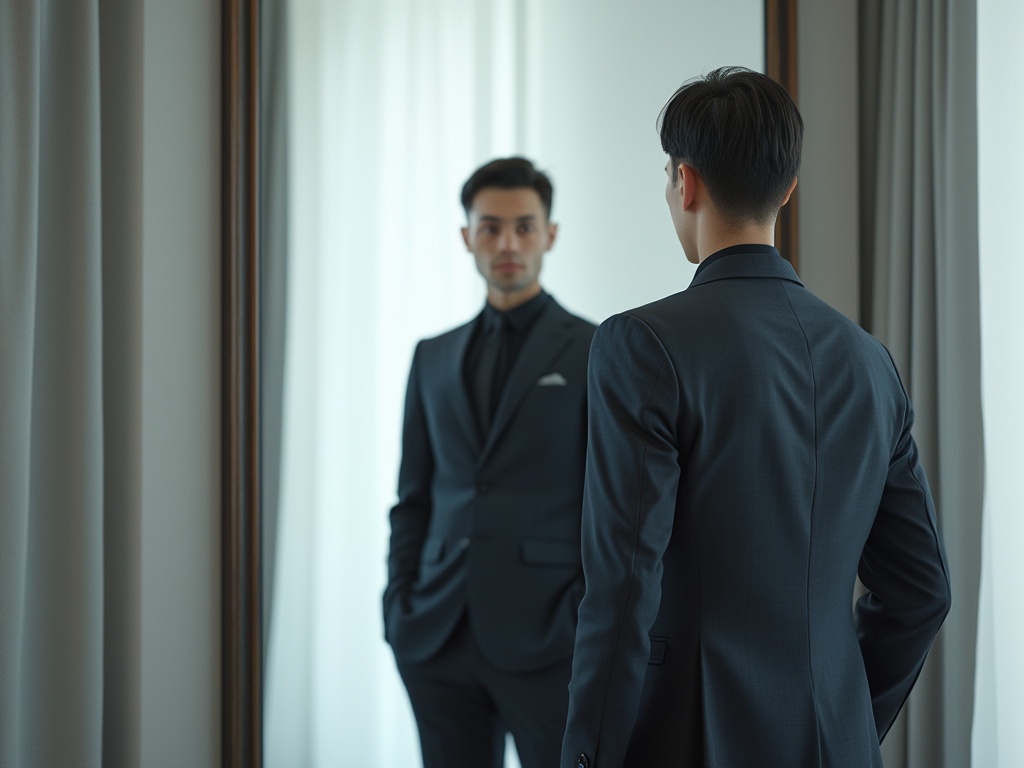
Your wardrobe choices pack more power than you might think. Research shows that people make roughly 29,000 fashion decisions throughout their lives, with each choice subtly shaping their mental state and behavior.
The clothes we wear don’t just affect how others perceive us – they actually influence our cognitive processes and performance levels in meaningful ways.
The concept of enclothed cognition demonstrates that our clothing choices directly impact our psychological state and capabilities.
Scientists have found that wearing specific types of clothing can boost attention levels and enhance performance in various tasks. This fascinating connection between clothing and psychology explains why many people feel more confident in a well-fitted suit or more focused when wearing workout gear.
Here’s how different clothing choices can affect your psychological state:
- Professional attire can increase abstract thinking and negotiation skills
- Athletic wear can improve physical performance and motivation
- Comfortable clothing can reduce stress and anxiety levels
- Bright colors can lift mood and energy
- Formal wear can boost confidence and decision-making abilities
Understanding this powerful connection between clothes and cognition helps explain why personal style matters so much. It’s not just about looking good – it’s about feeling good and performing at your best. The right outfit can serve as a form of psychological armor, helping you face challenges with greater confidence and capability.
What you wear becomes a tool for self-expression and personal empowerment. By choosing clothes that align with your goals and personality, you can harness the psychological benefits of enclothed cognition to enhance your daily experiences and achievements.
This makes thoughtful wardrobe choices an investment in both your appearance and your mental well-being.
“The right clothing doesn’t just change how the world sees you—it transforms how you see yourself, shaping your confidence, focus, and mental resilience.”
Cultural Significance and Socio-Economic Impacts of Personal Style
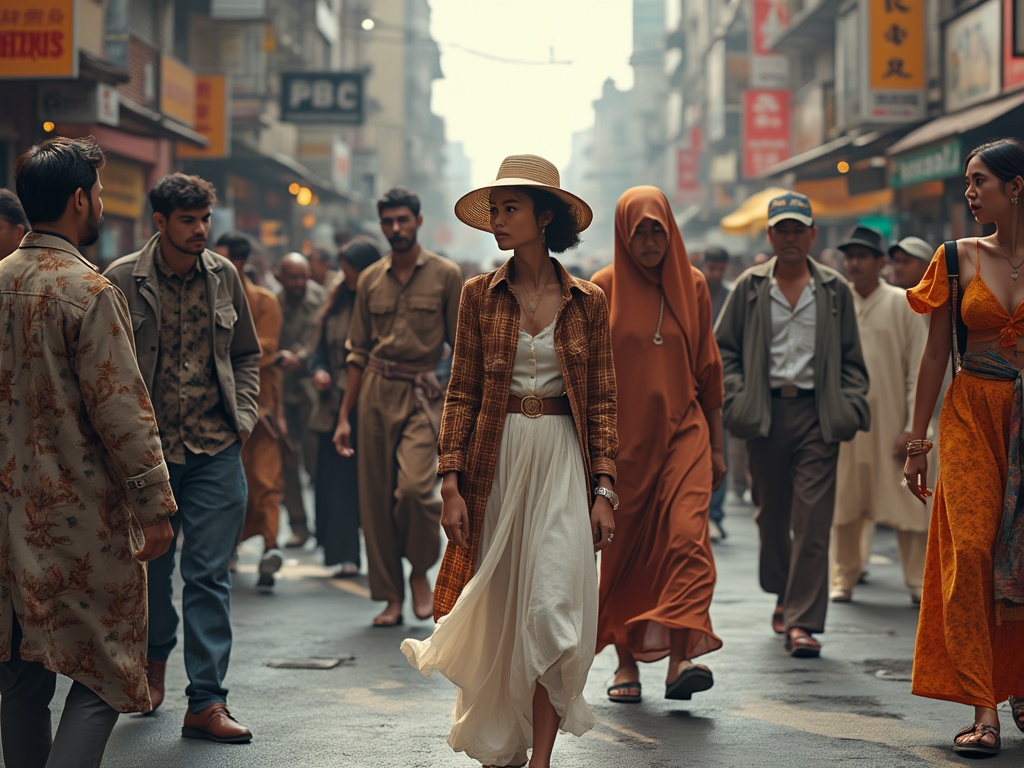
Research shows that 88% of Black women face pressure to change their natural hairstyles in professional environments. This pressure to change highlights a significant cultural issue in the workplace.
Personal style, particularly for Black women in professional settings, extends far beyond aesthetic choices.
It’s deeply intertwined with cultural identity and economic wellbeing. The intersection of personal expression and workplace expectations creates unique challenges, especially when traditional corporate cultures clash with authentic forms of self-expression.
The impact of style restrictions in professional environments has significant economic implications.
These decisions can influence everything from job interviews to daily workplace interactions.
- Hair discrimination affects workplace advancement opportunities, leading to decreased earning potential.
- Cultural hairstyles often require specific maintenance routines that may conflict with rigid workplace schedules.
- The financial burden of maintaining workplace-approved styles can significantly impact disposable income.
- Professional dress codes can inadvertently penalize cultural fashion choices and traditional garments.
- Style-based discrimination can create barriers to networking and client-facing opportunities.
The relationship between personal style and professional success highlights broader societal issues around cultural acceptance and workplace equity. Many organizations are now reconsidering their appearance policies, recognizing that traditional standards often reflect narrow cultural perspectives that can marginalize diverse expressions of professionalism.
Progressive companies are starting to embrace more inclusive style policies, acknowledging that personal expression through appearance can enhance workplace diversity and innovation.
This shift represents a growing understanding that allowing employees to bring their authentic selves to work – including through their personal style choices – can lead to increased productivity and better team dynamics.
Expert Tip: Companies fostering inclusive appearance policies can improve employee retention and job satisfaction, as individuals feel more valued and respected when permitted to express their cultural identity through personal style.
Embrace Your Style
Personal style transcends mere fashion trends, serving as a powerful medium through which we communicate our identity, values, and emotional state to the world.
Through thoughtful wardrobe choices, we can harness the psychological benefits of enclothed cognition, boosting our confidence, creativity, and overall mental well-being.
Whether it’s through formal attire that enhances abstract thinking or cultural expressions that honor our heritage, our clothing choices create a harmonious bridge between our inner selves and outer presentation, making personal style the ultimate form of authentic self-expression.
More to Love!
How to Style Your Earrings the Right Way for Each Occasion
How High Fashion is Influencing Interior Design
Content shared from www.lovehappensmag.com.



